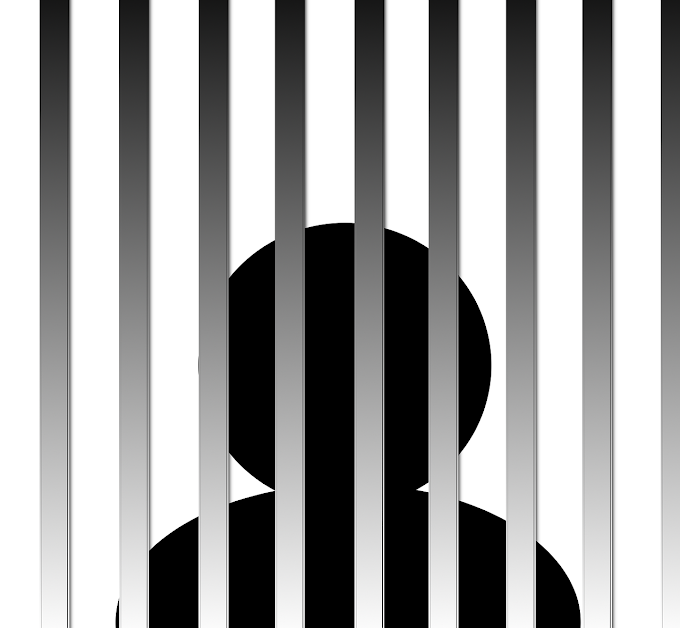Criminal law And Crime:
A law that deals with crime, its types, Reasons, and discusses ways in which to penalize the defendant and connected areas.
 |
| Criminal Law and Crime |
Criminal law is merely one among the devices by that organized societies shield the protection of individual interests and make sure the survival of the cluster. There are, additionally, the standards of conduct instilled by family, school, and religion; the foundations of the workplace and factory; the rules of civil life enforced by normal police powers; and also the sanctions out there through misconduct actions. the excellence between legal code and misconduct law is troublesome to draw with real exactitude, however normally one could say that misconduct could be a non-public injury whereas against the law is formed as an associate offense against the general public, though the particular victim is also a private.
Criminal Law’s Principle
The traditional approach to legal code has been that against the law is an associate act that's virtuously wrong. the aim of criminal sanctions was to create the wrongdoer offer retribution for hurt done and abye his ethical guilt; penalization was to be carried out in proportion to the guilt of the defendant. In the present time, a lot of philosophical doctrines and pragmatic views have predominated. Writers of the Enlightenment like Cesare Beccaria in the European country, Charles Louis de Secondat and writer in France, Bentham in GB, and P.J.A. von Feuerbach in Germany thought of the most purpose of legal code to be the interference of crime. With the event of the social sciences, there arose new ideas, like those of the protection of the general public and also the reform of the wrongdoer. Such a purpose may be seen within the German criminal code of 1998, which punished the courts that the “effects that the penalization is going to be expected to own on the perpetrator’s future life in society shall be thought of.” within us a Model legal code planned by the Yankee Law Institute in 1962 states that associate objective of legal code ought to be “to offer an honest warning of the character of the conduct declared to represent associate offense” and “to promote the correction and rehabilitation of offenders.” Since that point, there has been revived interest within the thought of general interference, as well as each the deterrence of doable offenders and also the stabilization and strengthening of social norms.
 |
Criminal law And Crime |
It is usually united that the essential ingredients of any crime area unit (1) a voluntary act or omission (actus reus), in the midst of (2) an exact state of mind (mens rea). the associate act is also any quite voluntary human behavior. Movements created in associate convulsion don't seem to be acts, nor area unit movements created by a sleeper before rousing, even though they end in the death of another person. Criminal liability for the result additionally needs that the hurt has done should are caused by the defendant. The check of a causative relationship between conduct and result's that the event wouldn't have happened constant approach while not direct participation of the wrongdoer.
Criminal liability may additionally be predicated on a failure to act once the defendant was below a duty to act and was moderately capable of doing this. The duty to act is also obligatory directly by statute, like the necessity to file associate tax come, or it's going to arise out of the connection between the parties because the obligation of oldsters to produce their kid with food.
Responsibilities and provision
Some penal offenses don't need the demonstration of censurable minds on the part of the defendant. These historically embrace violation, within which information that the kid is below the age of consent isn't necessary to liability. there's additionally an oversized category of “public welfare offenses,” involving such things as economic rules or laws regarding public health and safety. The principle for eliminating the provision demand in such offenses is that to want the prosecution to ascertain the defendant’s intent, or maybe negligence would render such regulative legislation mostly ineffective and unenforceable. Such cases are unit well-known in American law as strict liability offenses, and in French law as infractions purement matérielles. In German law they're excluded as a result of the necessity of provision is taken into account a constitutional principle.
There have been right smart criticism of statutes that make liability while not actual ethical fault. to show voters the condemnation of a criminal conviction while not showing ethical culpableness raises problems with justice. In several instances, the objectives of such legislation will a lot effectively be achieved by civil sanctions, as, as an example, suits for damages, injunctions, and also the revocation of licenses.
Liabilities, Intentions, content, and mistake
In most countries, the law acknowledges that an individual UN agency acts in the content of the facts of his action shouldn't control reprehensively accountable. Thus, one UN agency takes and carries away the products of another person, basic cognitive process them to be his own, doesn't commit thievery, for he lacks the intent to steal. content of the law, on the opposite hand, is mostly control to not excuse the actor; it's no defense that he was unaware that his conduct was out by legal code. This school of thought is supported by the proposition that criminal acts are also recognized as harmful and immoral by any cheap adult.
The matter isn't thus clear, however, once the conduct isn't clearly dangerous or immoral. a considerable body of opinion would allow mistakes of law to be declared in defense of criminal charges in such cases, significantly once the litigant has in honestness created cheap efforts to get what the law is. In the Federal Republic of Germany the tribunal of Justice in 1952 adopted the proposition that if an individual engages in criminal conduct however is unaware of its criminalism, that person can't be totally charged with a criminal offense; this has since been incorporated as a rule the German criminal code. Law and apply in Schweiz area unit quite similar. In Oesterreich mistake of law could be a legal defense. In the U.S. the Model legal code would permit a defense of a mistake of law, however, this is able to seldom embrace a slip like the existence of which means of the law process the crime itself.
Duties
It is universally united that in acceptable cases persons tormented by serious mental disorders ought to be eased of the results of their criminal conduct. an excellent deal of argument has arisen, however, on the acceptable legal tests of responsibility. Most legal definitions of mental disturbance don't seem to be supported fashionable ideas of bioscience, and psychiatrists consequently notice it troublesome to create their information relevant to the wants of the court.
Various tries are created to formulate a replacement legal check of responsibility. The Model legal code endeavored to satisfy the manifold difficulties of this downside by requiring that the litigant be empty “substantial capacity either to understand the criminalism of his conduct or to evolve his conduct to the wants of the law” as a result of psychological state or defect. This resembles the Soviet formulation of 1958, which needed a psychological state because of the medical condition and incapacity to understand or manage because of the psychological condition ensuing from it. constant is also aforementioned of the German law, though the latter includes in psychological state such disorders like mental illness and neuroticism additionally to psychoses and provides for numerous gradations of diminished responsibility. Several U.S. jurisdictions, as well as federal law, have abandoned the voluntary projection of the mental disease check and came to the traditional English rule ordered down in M’Naghten’s Case (1843) eight Eng. Rep. 718, 722. consistent with that case, an associate insane person is exempt given that he failed to understand the character and quality of his act or couldn't tell right from wrong. English people kill Act of 1957 additionally acknowledges diminished responsibility, tho' to less impact. The Act provides that an individual UN agency kills another shall not be guilty of murder “if he was tormented by such abnormality of mind…as considerably impaired his mental responsibility for his acts or omissions in doing or being a celebration to the killing.” the first impact of this provision is to cut back associate offense of murder to at least one of homicide.
Types of Crimes:
All advanced legal systems condemn as criminal the types of conduct delineate within the American law as treason, murder, assault, theft, robbery, burglary, arson, and rape. With relevance to minor police rules, however, substantial variations within the definition of criminal behavior occur even between jurisdictions of the American system. Comparisons of the continental European legal code therewith supported English people common law of crimes additionally reveal vital variations within the definition of bound aspects of a lot of serious crimes. Continental European law, as an example, oftentimes articulates grounds for mitigation involving issues that area unit is taken under consideration within the American countries solely within the exercise of discretion by the sentencing authority or by lay juries. this could be illustrated with relevance alleged mercy killings. The American law of murder acknowledges no formal grounds of defense or mitigation within the incontrovertible fact that the defendant killed to alleviate somebody of tormented by the associate apparently incurable malady. several continental European and Latin American codes, however, offer for mitigation of offenses prompted by such motives and generally even acknowledge in such motives a defense to the criminal charge.









0 Comments